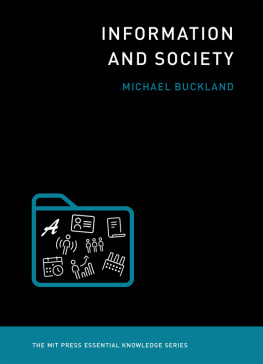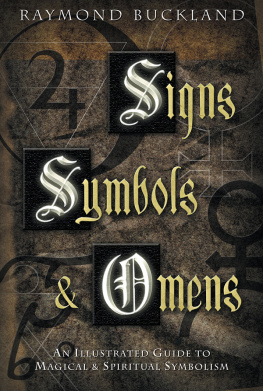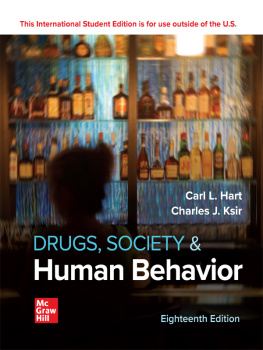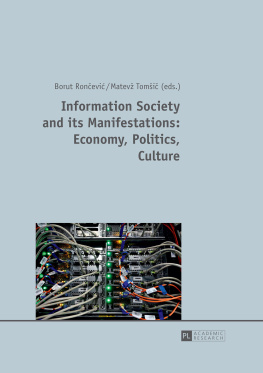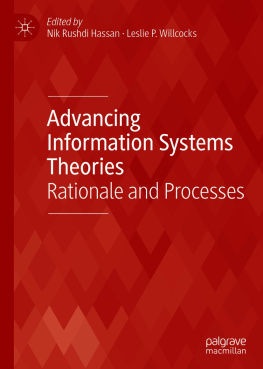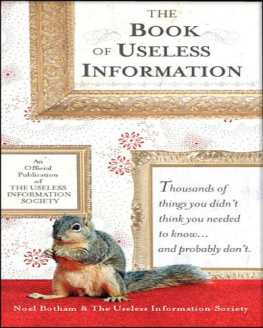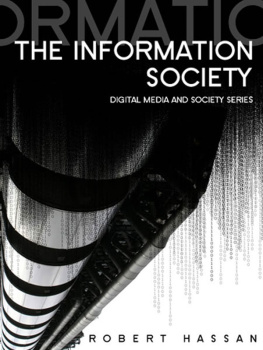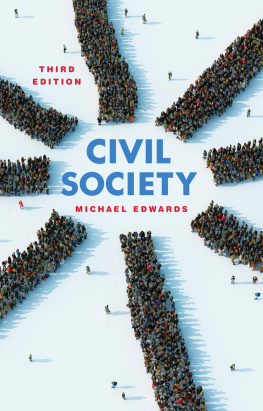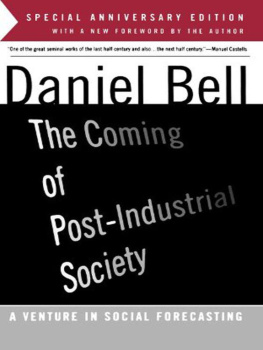
The MIT Press Essential Knowledge Series
Auctions, Timothy P. Hubbard and Harry J. Paarsch
Understanding Beliefs, Nils J. Nilsson
Cloud Computing, Nayan Ruparelia
Computing: A Concise History, Paul E. Ceruzzi
The Conscious Mind, Zoltan L. Torey
Crowdsourcing, Daren C. Brabham
Free Will, Mark Balaguer
Information and Society, Michael Buckland
Information and the Modern Corporation, James W. Cortada
Intellectual Property Strategy, John Palfrey
The Internet of Things, Samuel Greengard
Memes in Digital Culture, Limor Shifman
Metadata, Jeffrey Pomerantz
The MindBody Problem, Jonathan Westphal
MOOCs, Jonathan Haber
Neuroplasticity, Moheb Costandi
Open Access, Peter Suber
Paradox, Margaret Cuonzo
Self-Tracking, Gina Neff and Dawn Nafus
Robots, John Jordan
Waves, Frederic Raichlen
Information and Society
Michael Buckland
The MIT Press
Cambridge, Massachusetts
London, England
2017 Massachusetts Institute of Technology
All rights reserved. No part of this book may be reproduced in any form by any electronic or mechanical means (including photocopying, recording, or information storage and retrieval) without permission in writing from the publisher.
This book was set in Chaparral Pro by Toppan Best-set Premedia Limited. Printed and bound in the United States of America.
Library of Congress Cataloging-in-Publication Data is available.
ISBN: 978-0-262-53338-6
eISBN 9780262339537
ePub Version 1.0
Series Foreword
The MIT Press Essential Knowledge series offers accessible, concise, beautifully produced pocket-size books on topics of current interest. Written by leading thinkers, the books in this series deliver expert overviews of subjects that range from the cultural and the historical to the scientific and the technical.
In todays era of instant information gratification, we have ready access to opinions, rationalizations, and superficial descriptions. Much harder to come by is the foundational knowledge that informs a principled understanding of the world. Essential Knowledge books fill that need. Synthesizing specialized subject matter for nonspecialists and engaging critical topics through fundamentals, each of these compact volumes offers readers a point of access to complex ideas.
Bruce Tidor
Professor of Biological Engineering and Computer Science
Massachusetts Institute of Technology
Foreword
It is a truism to say that we live in an information age or an information society, but it is nonetheless impossible to deny that information (along with data and knowledge, if we wish to make to make the distinction) is now central to the functioning of all developed societies.
It is conventional to suggest that we came to this situation through a series of information revolutions, by which a new technology, using the word in its broadest sense, drastically changed the way information is recorded and communicated. The number and nature of these revolutions varies between commentators, but typically they include the introduction of writing, printing, mass communications, the digital computer, and the Internet.
A cogent analysis by Luciano Floridi argues that we are living in an age of hyperhistory, in which the well-being of individuals and societies is entirely dependent on information and communication technologies. Floridis contention is that we are seeing an informational turn or fourth revolution, following the scientific revolutions of Copernicus, Darwin and Freud (). We should regard ourselves as informationally embodied organisms, inforgs, embedded in an informational environment, the infosphere, in which the boundaries between our online and offline environments merge.
Given this embedded centrality of information in modern society, it is not surprising that it is studied, from various points of view, by a number of disciplines, including computer science, media studies, psychology, sociology, mathematics, education, economics, and philosophy. These are only the disciplines interested in information in the sense of meaningful, communicable information. The list lengthens if we include conceptions of information in other domains, such as physics and biology ().
The one discipline that has information as its sole object of interest is information science. This grew during the twentieth century from the concerns of the documentation movement, which sought to understand the nature of documents of all kinds, and hence to provide access to them in a much more sophisticated way than conventional catalogs and indexes could provide (). The advent of the digital computer gave an impetus to the new discipline, which has overlapped with, while remaining distinct from, computer science. Information science concerns itself with all aspects of the organization and communication of recorded information, with the information and digital literacies needed to make use of it, and with associated ethical issues. The insights of the discipline are crucially relevant in developing the dramatically changing infosphere.
There are a number of good texts setting out the basics of information science; I am co-author of one such (). But these are typically aimed internally: at faculty, students, and practitioners within the subject. If we believe, as I do, that information science has many insights to offer to a much wider context, then we need books that specifically address a wider audience. Michael Bucklands book is the first to attempt this.
An impressive feature of the book is the way in which such a breadth of material is brought together clearly and concisely. It is pleasing to see how Buckland integrates the traditional concerns of information sciencein particular, how information resources are described, organized and retrieved, and the ways in which people and groups behave with informationwith thoughts about the nature of the documents through which recorded information is communicated. The new forms of document which have emerged in networked digital environments have led to a renewed interest in the nature of documents, and this kind of conceptual analysis, though lower key than new technological developments, is just as likely to be valuable in ensuring effective communication, and good use, of information. I applaud Bucklands vision of information science as a broad and inclusive field of study; only such a holistic approach can do justice to the issues that emerge when information takes center stage in society.
Michael Buckland modestly writes that his interpretation draws on the work of many people and little of it is original. While this may be true in the sense that the material presented in his book has mostly been published before in some form, I think there is great originality in the way it has been selected, organized and presented for a nonspecialist audience. This is highly commendable, and the book deserves to be widely read. Its success will, perhaps, be measured by whether it is the first of a succession of publications, bringing the insights of information science and the documentation movements to a wider audience. We must hope that proves to be the case, as these perspectives are sorely needed if the infosphere is to develop and flourish.
David Bawden
Centre for Information Science, City University London
References
- Bawden, David, and Lyn Robinson. 2012.
Next page
